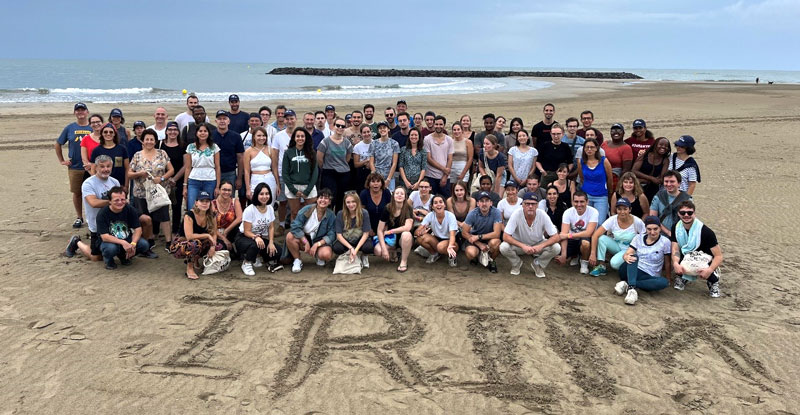
Our laboratory is a research centre of CNRS and Montpellier University dedicated to academic research of quality in the fields of bacteriology, virology, and immunity. Training of the next generation of scientists and doctors driven by the study of human infectious diseases also is a main purpose of our centre. Our institute offers a unique environment in Montpellier where basic research scientists, professors, engineers, and technicians work together to better understand the underlying mechanisms of the development of infectious diseases but also to develop new treatments.
Our centre is located on the CNRS campus, connected to two other institutes, the Centre for Research in Cellular Biology of Montpellier (CRBM) and the Institute of Molecular Genetics of Montpellier (IGMM). Together, the three institutes represent of research potential of 600 people and constitute an exceptional intellectual and technological environment.
Our researchers have access to all experimental facilities required for cutting-edge research owing to Montpellier service platforms. These include L3 safety laboratories, animal facilities (transgenesis, homologous recombination and imaging of small animals), state-of-the-art cell imaging, cytometry and cell sorting, genomics, and proteomics.
Our research fields cover a wide array of infectious diseases induced by different pathogens including bacteria such as Coxiella burnetii (agent of the zoonosis Q fever), Mycobacterium tuberculosis, Brucella (pathogenic for humans and animals), and viruses (retroviruses, emerging viruses, measles virus, flu virus, hepatitis viruses). Understanding of the cellular mechanisms involved in resistance to infections (autophagy, interferon synthesis, cellular restriction factors) is a strong area of our researches too. This potential of research in bacteriology and virology, combined with our skills in biophysics, contributes to the development of knowledge and tools to struggle against drug resistant pathogens. Moreover, our centre has a strong attractiveness, illustrated by the arrival of novel talented scientists either as group leader or as project leader. In the next years, we will continue to develop our scientific potential through recruitment of new talented group leaders in order that IRIM becomes known worldwide for the quality of its works.







